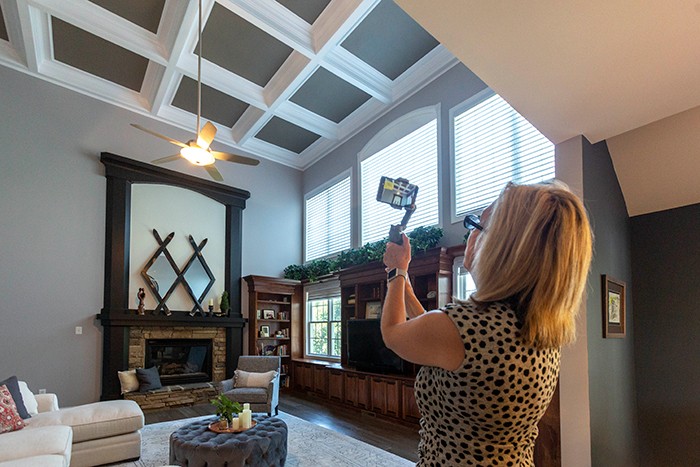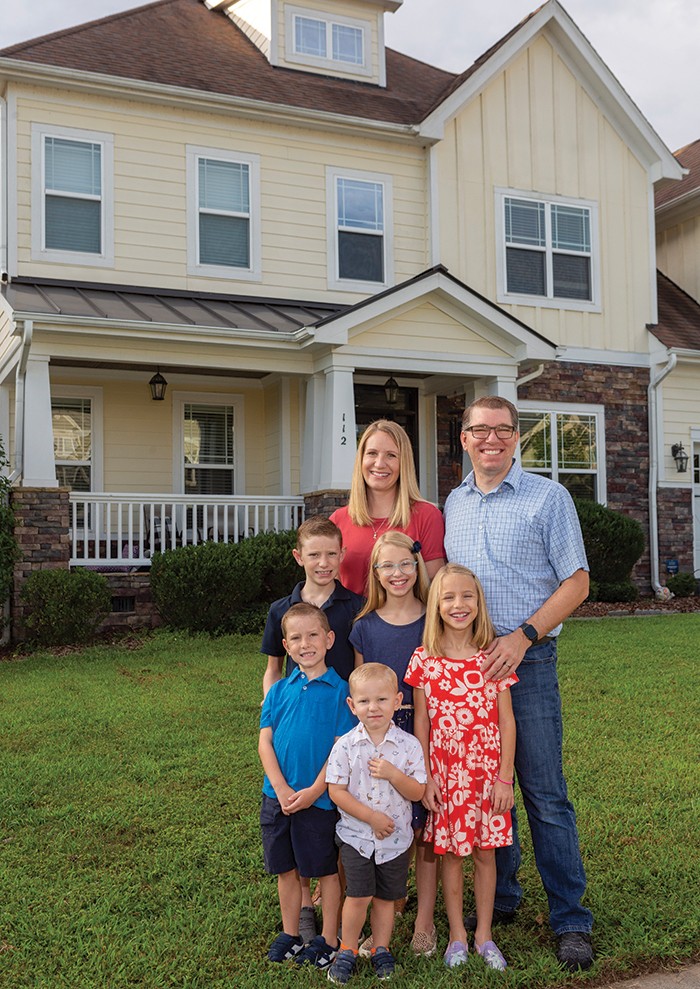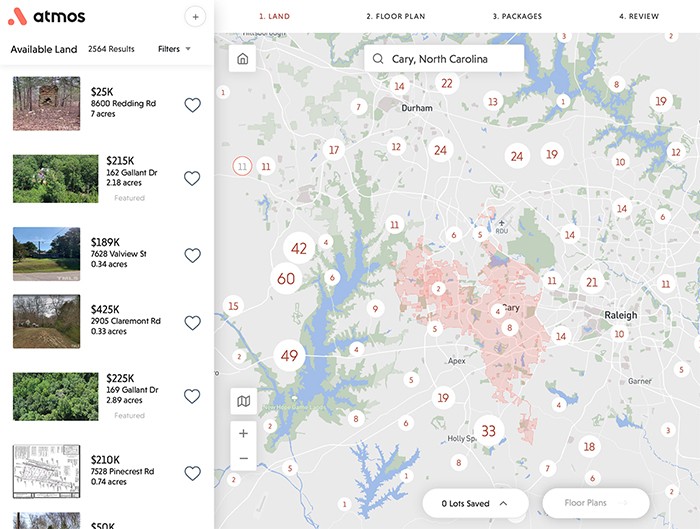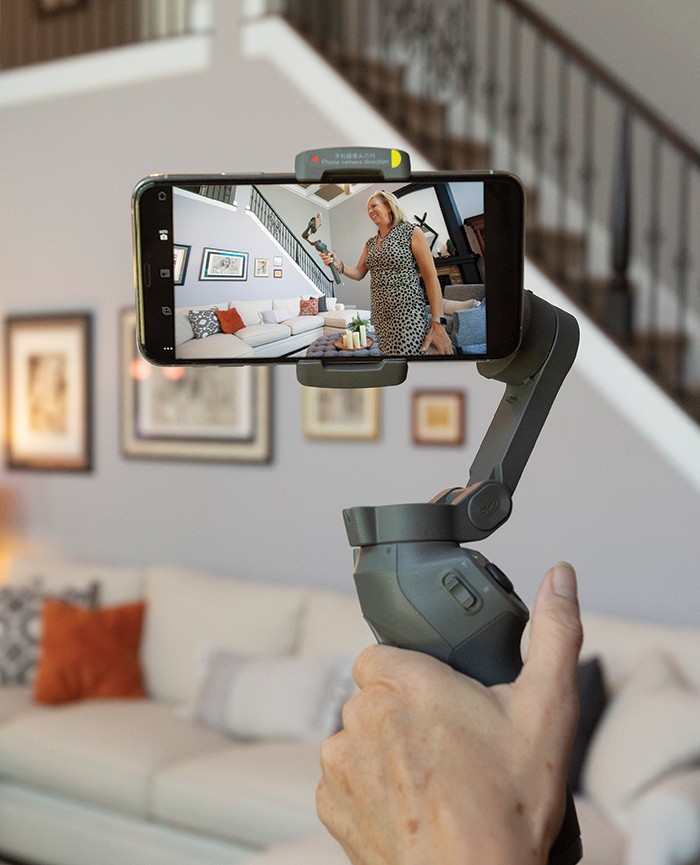Despite months of stay-at-home orders and travel restrictions, people have continued to move to the Triangle, adding fuel to an already red hot housing market.
North Carolina was one of the top destinations for those relocating during the pandemic, according to a report from moving company United Van Lines. Between March and August, more people moved to the state than left, many of them coming from big urban centers in New York and California.
“I think we’re busier than ever, but we just don’t have enough listings,” said Colleen Blondell, founder of Cary-based Blondell Properties. “No agent has enough listings right now.”
Because of the demand for houses, especially in desirable neighborhoods, technology can give buyers a competitive advantage. And since these virtual tools can also reduce face-to-face encounters, real estate transactions haven’t slowed over the summer.
Help in a hot market
“If a house comes on the market midweek in this market, which is crazy, in a seller’s market — if a house comes on midweek, you may not have until the weekend to go see the house,” said Raleigh real estate agent Meredith Pope, explaining that some houses can sell within days.

Colleen Blondell says real estate agents are doing more video tours these days. “I think we did it a year ago; we would do FaceTime and videos,” she says, “But now, we have a lot more clients that are buying virtually.”
The client might ask the realtor to visit the home, and using FaceTime or another app, walk through the house. These tours can be tailored to the client, addressing specific concerns.
“We’re able to walk through the home and showcase the good, the bad and the ugly,” Blondell said. “Buyers want transparency, so this way, if there’s any odors in the home, we can bring it up right away on the video. …Or, we might be able to open up cabinets and closets and look in garages.”
Sometimes these virtual walk-throughs are enough for buyers to make an offer — especially if a home is listed for less than $500,000. Blondell recalled an open house she hosted this summer.
“We had probably 30 showings on a Saturday, and two of the agents were helping their buyers buy virtually. They had never seen the house. We got two offers before the house was even active and available to see,” she said.
Time-saving benefits
Most clients, however, want to see the house in person before they sign on the dotted line.
Josh Galvez and his wife, Tiffany, bought a home in Cary this summer, working with Blondell virtually, until the final decision.
The couple and their five children were relocating from Utah, and traveling back and forth to North Carolina was impractical. Besides the anxiety of flying during a pandemic, wrangling the children while touring potential homes would not have been ideal, Galvez says.
Using an app called HomeSpotter, Blondell sent them listing information about houses they might be interested in, and many included 3D tours.
“We were able to click through and virtually walk through the house,” said Galvez, who works in cybersecurity for LogMeIn. “You could see the house and the rooms beyond a static photo.”
Once the couple had a list of possible matches, Blondell would do live video walk-throughs, giving them a guided tour of each home.
After looking at hundreds of homes virtually, the couple shortlisted 15 homes and flew in for the weekend to clinch the deal. They settled on a house with plenty of room for their children and high-speed internet, so Galvez could work from home.
“We ended up buying a bigger home than we originally planned,” he said. “After we came out here and saw it in person, we realized that we needed something with a little bit more space than what, on paper, seemed good.”

Josh Galvez, who moved to Cary in July with his family, says the video tours were helpful when he and his wife, Tiffany, were looking at potential homes. They picked their house after touring several that looked promising online, but didn’t quite work in person.
‘No going back’
Real estate professionals may have started using these virtual tools in place of face-to-face meetings, but agents say the technology is here to stay.
Pope says it’s “incredibly helpful” when prospective buyers, like the Galvezes, can rule out unsuitable homes without setting foot on the property. Using Google Maps, clients can check out the neighborhood, nearby amenities and the home’s exterior. And, they can “walk through” the home, if there’s a 3D virtual tour.
“They do not have time to look at 30 still pictures, and spend all day Saturday and Sunday, touring around,” said Pope, of her busy clients. “This saves them time. They can be as engaged as they want, on their one-hour break at lunch, to go through a house, to look at the house on the land, and rule it out, rule it in.”
A year ago, 3D tours were common only in more expensive properties, those listed for sale at $1 million or more, says Blondell. Now they are common at lower price points, because so many buyers are shopping virtually.
“I wouldn’t ever think of listing a house today without a virtual tour,” agreed Pope. “These virtual tours, they were one-offs before. Now they’re being offered because of COVID, but we’re realizing the value in them. There’s no going back.”
More Tech Tools for Real Estate Market
Two companies with local roots are betting that the home-buying experience will become increasingly virtual, especially when clients are younger and more tech savvy.

Nicholas Donahue
Atmos, founded by Durham native Nicholas Donahue, aims to streamline the process of building custom homes.The platform allows homebuyers to select a piece of property, pick a floor plan, find a lender and connect with a builder with just a few clicks.
“Most people don’t consider building a home anymore,” Donahue said. “Our ability to make the custom side simple enough or equivalent to that of a tract home builder makes it super enticing for people, especially the ones who are a little bit more picky and want something specific.”
After clients make their choices, a project manager is assigned to the project, addressing day-to-day complexities, preventing them from slowing the project or creating unforeseen costs.

The company has built fewer than a dozen homes in the Triangle, but is pinning its hopes on remote workers relocating from the two coasts.
HomeRover, a free app created by Raleigh-based BrightDoor, was developed specifically to improve the live video tours that real estate agents are already performing.
According to the website, on HomeRover “the host can complete checklist items as they move through the home, and both the host and participants can take still-image snapshots for later reference. Following the live tour, a video replay will be available.”
- Thank You Apex: Sincerely, Jane Wolfgang
- Pittsboro: The Epicenter of Groovy
- Small Business Spotlight: Dust and Mop
- Nonprofit Spotlight: The Green Chair Project
- From the Editor: Homes and Exteriors
- Worth the Drive: Press Coffee + Crepes in Graham
- Liquid Assets: Harvest Time Pumpkin Ale from Big Boss Brewing
- Creating an Outdoor Oasis
- Virtual Real Estate
- Crush the Blues!
- Garden Adventurer: Frilly-Dilly!






